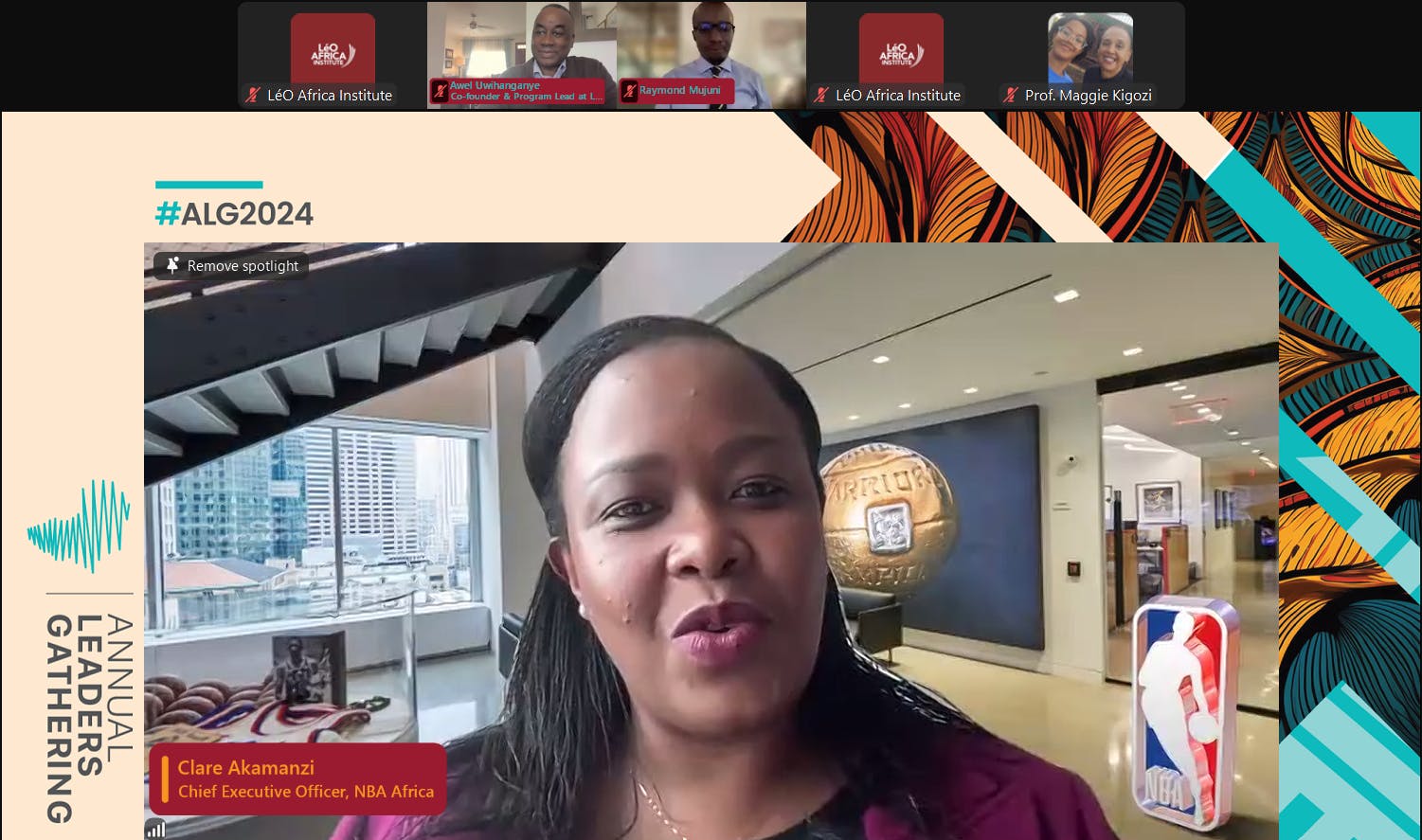Highlights from Session V Panel Discussion
Bridging the Gap Between Education and Industry - Michael Niyitegeka
In a thought-provoking discussion on education, technology, and the workforce, Michael highlighted a pressing need for a paradigm shift in how education systems equip students with skills for the modern world.
Michael began by emphasizing that cutting-edge technologies such as artificial intelligence and blockchain are no longer distant concepts – they are here. Unfortunately, many institutions in parts of the continent remain behind the curve, operating with outdated systems that fail to prepare students for current industry demands.
Drawing on personal experiences, Michael recalled years spent in academia where the focus was on accumulating academic qualifications, such as master’s degrees and PhDs, rather than practical skills relevant to industry. This disconnect between academia and industry results in graduates who struggle to find meaningful employment. He stressed that training for industry requires firsthand experience in the field, not just theoretical knowledge.
Michael shared a personal initiative, Refactory, which has successfully trained and placed hundreds of young people in jobs. Unlike traditional systems, this program focuses on equipping students with practical, employable skills. Accreditation, he argues, should come from employers who recognize the value of the training provided – not from rigid, outdated frameworks.
Michael underscored the importance of allowing radical thinkers to innovate within education. True innovation, he argues, arises from practice and experimentation, not from rigid academic environments. Leaders in education must create space for such creativity and adapt to changing industry needs.
Michael concluded by urging action, emphasizing that even helping one person find meaningful employment is a step toward progress. Change requires boldness, collaboration with industry, and a commitment to doing – rather than merely talking.
Africa’s youthful demographic is not a crisis but an unparalleled opportunity - Catherinerose Barretto
Catherine posited that Africa is home to the world’s youngest population, with over 60% of its people under the age of 25. This demographic, representing more than 200 million youth, holds immense potential for transformation. However, the continent also faces daunting challenges. With unemployment rates averaging over 20%, and in some cases exceeding 70%.
She noted that Africa has the highest youth unemployment globally. Women bear the brunt of this crisis, with higher unemployment rates than men.

By 2030, Barretto projected that Africa’s youth will account for 42% of the world’s youth population and 75% of those under 35. This makes investing in human capital — the knowledge, skills, and capabilities that drive productivity — not just a necessity for Africa, but a global imperative. Human capital, unlike machines that depreciate over time, grows stronger with use, compounding its value like a muscle strengthened through exercise.
Barretto emphasized that Africa’s youthful demographic is not a crisis but an unparalleled opportunity. By transforming this "youth bulge" into a skilled and talented workforce, Africa could unlock an additional $500 billion annually in GDP growth. Enhancing education alone could generate $1.5 trillion in new business value by 2030. However, she noted that challenges persist. For example, 85% of African children cannot read a simple text by age 10, and only 2% of the world’s research output comes from Africa, despite the continent hosting 17% of the global population.
Addressing these gaps requires urgent investment in education, technology, and innovative learning methods. Upskilling workers could generate 200 million jobs by 2030, significantly reducing the job-skills mismatch that leaves 80% of African workers in vulnerable employment. Moreover, improving healthcare infrastructure is equally crucial. Barretto decried that Africa has just 3% of the world’s health workers but bears 24% of the global disease burden. She noted that training six million additional health professionals by 2030 could save 3.1 million lives annually.
According to Catherine, Africa’s youth present the potential to be the world’s largest workforce by 2030, outpacing even India and China. To harness this demographic dividend, governments, businesses, and stakeholders must invest in people today. This investment is not only a path to prosperity for Africa but also a key to shaping a brighter, more equitable future for the world.
Empowering Youth Through Skills Development - Naïssa Umutoni Karekezi
Naissa emphasized the importance of youth acquiring practical skills that are not solely tied to academic certificates or degrees. With a focus on skills development, she highlighted the need to bridge the gender gap and create inclusive opportunities that cater to diverse demographics, including individuals with disabilities.

Drawing from Rwanda as an example, Naissa referenced the “Hanga Ahazaza” initiative, which translates to “Create the Future.” This program equips young people with the skills needed in the hospitality and tourism sectors by aligning training with industry demands. It also highlights the importance of innovative solutions, such as employing individuals with speech or hearing impairments in roles that do not require direct interaction but still provide meaningful employment opportunities.
Naissa observes that vocational education and training are seen as critical avenues for empowering youth, especially through hands-on approaches. However, ensuring accessibility for all, including those with physical disabilities, remains a key challenge. She left the audience with the thought of how such training programs can be expanded and adapted to reach and include all segments of the population.
In conclusion, fostering inclusivity and developing practical skills are pivotal for empowering youth and addressing employment challenges. Through collaborative efforts between the public and private sectors, programs like “Hanga Ahazaza” demonstrate how targeted initiatives can create a future where everyone, regardless of ability or background, has the opportunity to thrive.
Skilling as a Pathway to Opportunity - Andrew Mbigiti
Mbigiti underscored the transformative power of skills development in addressing unemployment and personal growth. By focusing on practical, transferable skills rather than solely relying on academic degrees, he noted that individuals can unlock opportunities and thrive in a rapidly evolving world.

A key theme in his presentation was the importance of starting small and leveraging existing knowledge to help others. For instance, teaching simple but impactful tools like Excel formulas can significantly improve efficiency in the workplace. Such acts of sharing knowledge, even in informal settings, can create ripple effects that elevate individuals and communities.
Andrew provided examples of organizations contributing to this effort, such as MTN’s skilling program, which offers free courses in data analysis and Excel through partnerships with online platforms. Similarly, Andrew highlighted how learning skills like Chinese language or graphic design opened unexpected career opportunities for him, demonstrating that practical skills often have more immediate value than traditional degrees.
He also noted that skilling initiatives don’t need to involve expensive universities or extended programs. Short, targeted learning opportunities – such as secretarial training or AI prompt engineering workshops – can equip individuals with lifelong abilities. Mbigiti emphasized the importance of starting within one’s circle, sharing knowledge with family, colleagues, or peers.
In conclusion, Andrew message was that skills are an enduring asset that no one can take away. Whether through formal programs or grassroots initiatives, fostering a culture of skills-sharing and practical education is vital for personal success and community development.
Compiled by Nnanda Kizito Sseruwagi
Nnanda is the Media and Communications Officer at the LéO Africa Institute




